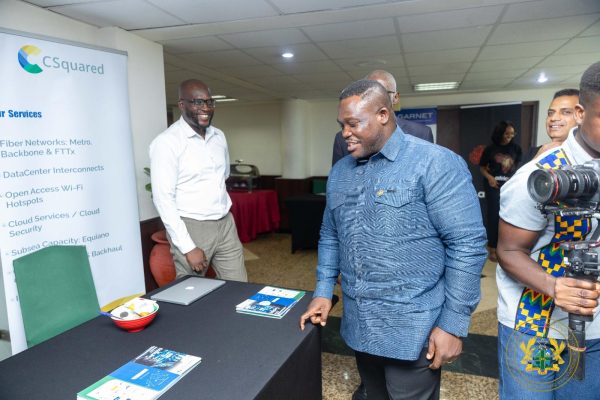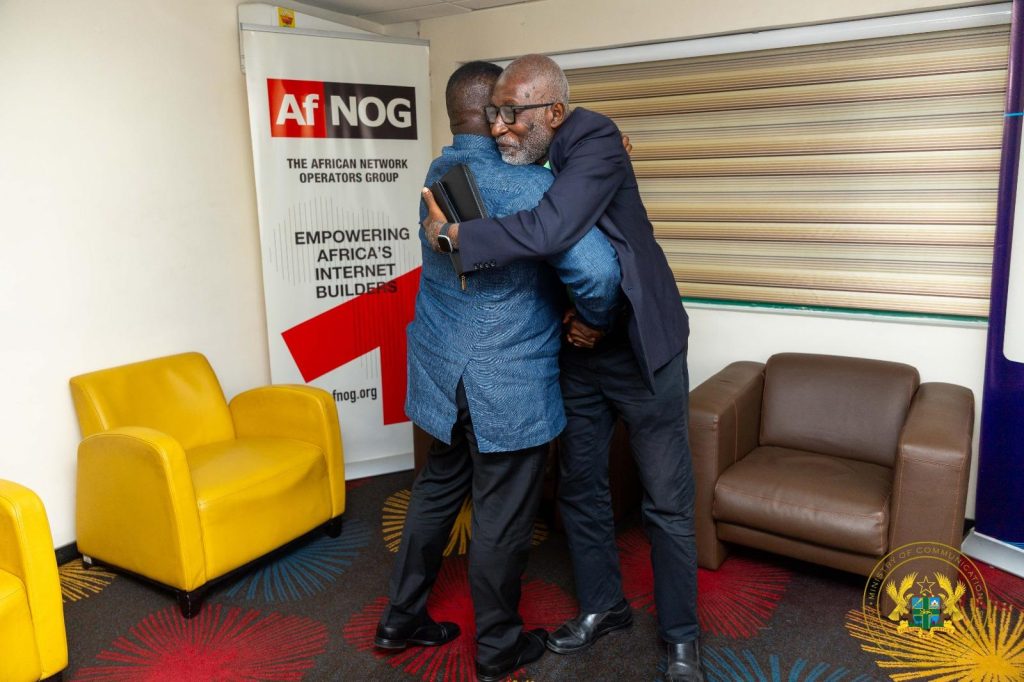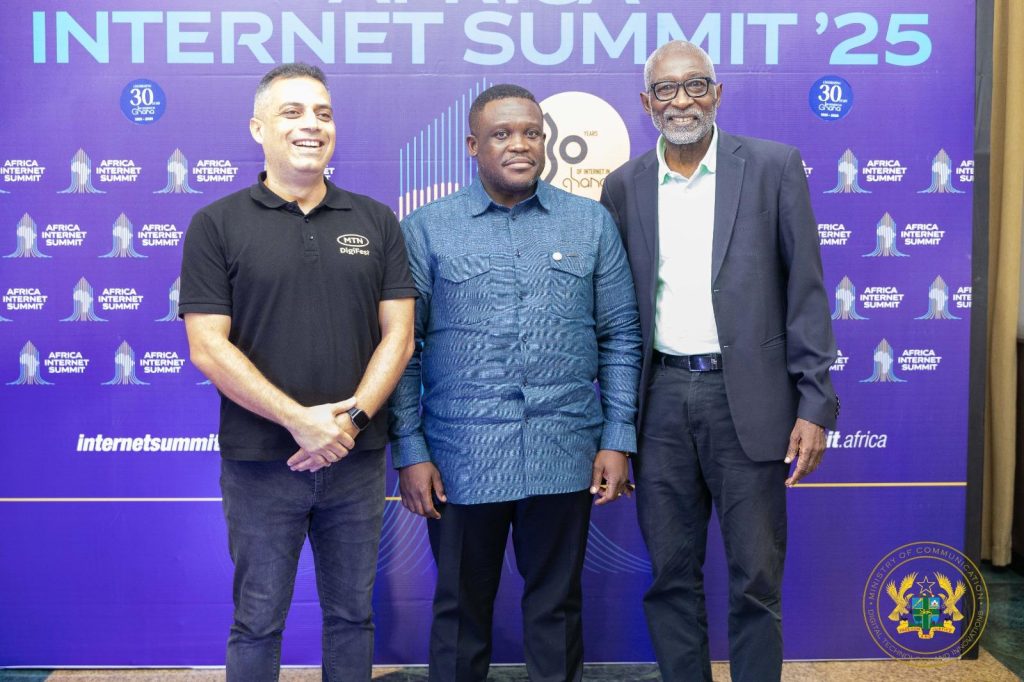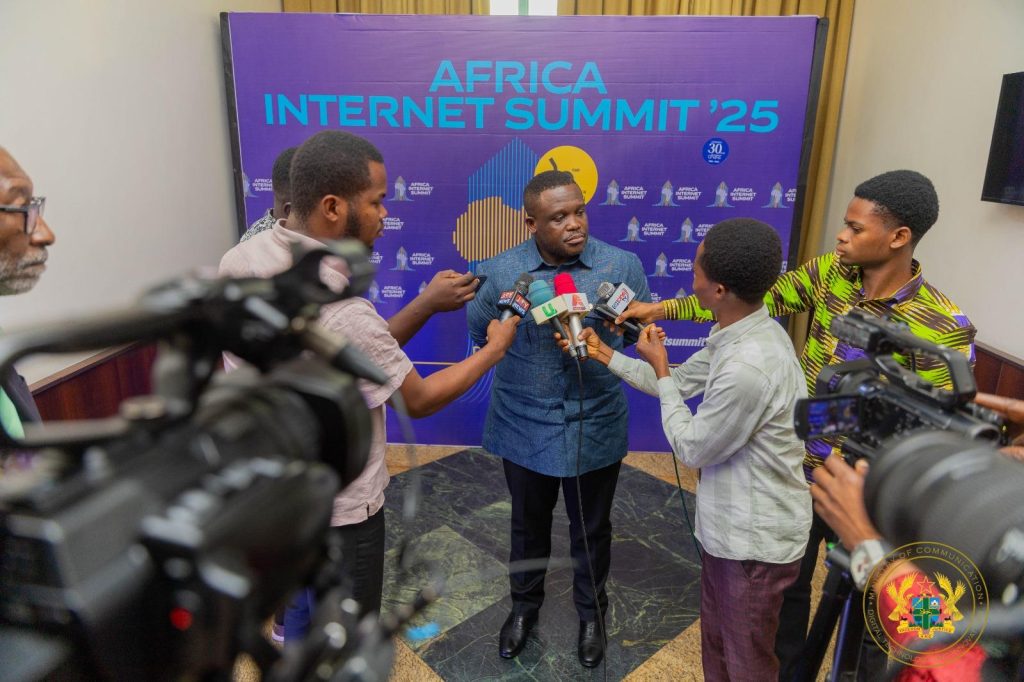
The Minister for Communication, Digital Technology and Innovations, Hon. Samuel Nartey George (MP), has officially opened the 2025 Africa Internet Summit in Accra, marking Ghana’s celebration of 30 years of Internet connectivity.
In his welcome address, the Minister reflected on Ghana’s pioneering decision in 1995 to connect to the global Internet, despite limited infrastructure, and outlined the nation’s progress over three decades.
Highlighting key milestones, he cited the establishment of the Ghana Internet Exchange in 2005, the landing of multiple submarine cables, and the growth of a vibrant ecosystem of mobile broadband, cloud data centres, and innovation hubs supporting entrepreneurs, students, and businesses nationwide.
“The real success is not the cables, towers, or servers. It is the people – the young coders, network engineers, and entrepreneurs who are the heartbeat of Ghana’s digital revolution,” he stated.
Hon. Samuel Nartey George, however, acknowledged persistent challenges, including uneven access, high connectivity costs, inadequate digital literacy, and cyber vulnerabilities.
He stressed that overcoming these barriers was vital for inclusive growth and safeguarding Africa’s digital sovereignty.
The Minister commended the role of key national institutions including the National Communications Authority ( NCA) , Cyber Security Authority (CSA), Ghana Domain Name Registry, National Information Technology Agency (NITA) and Ghana Investment Fund for Electronic Communication (GIFEC), in driving Ghana’s digital transformation and expanding access, particularly in underserved communities.
Looking ahead, Hon. George outlined five priority areas for Africa’s digital future:
1. Connecting Africa to itself to reduce reliance on external routing;
2. Transitioning from consumers to creators of technology;
3. Retaining digital value within Africa through open-source and AI frameworks;
4. Powering the Internet with reliable, renewable energy; and
5. Maintaining openness to innovation while ensuring fair competition and consumer protection.
He further tied these ambitions to government’s 24-Hour Economy agenda, which aims to create jobs and enhance service delivery through round-the-clock access to digital platforms.
“Digital government services will allow citizens to register businesses, file taxes, and renew licences at any hour. E-commerce will enable farmers in remote towns to sell produce globally. Telemedicine and online education will flourish, supported by strong cybersecurity,” he said.
“Let us turn connectivity into capability, and capability into opportunity. Together, we can ensure that the Internet remains a powerful engine of jobs, innovation, and prosperity for the entire African continent,” he concluded.


